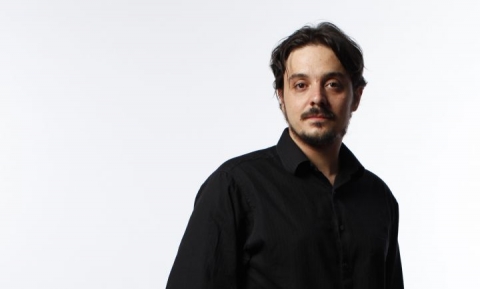
Date:
Location:
Speaker:
Zebrafish are gaining momentum as the third millennium laboratory species for the investigation of several functional and dysfunctional biological processes in humans, including the fundamental mechanisms modulating emotional patterns, learning processes, and individual and social response to alcohol and drugs of abuse. However, as with rodents and primates, experimentation with zebrafish constitutes a complicated and contemporary ethical issue that demands the exploration of alternative testing methods to reduce the number of subjects, refine the experimental designs with animal welfare in mind, and possibly replace live animals with other scientific instruments. Drawing inspiration from the field of mathematical finance, we propose a new data-driven modeling framework to study zebrafish behavior and, potentially, aid in the design of unprecedented “in silico” experiments. Specifically, we establish a stochastic mean reverting jump diffusion model (jump persistent turning walker) to describe zebrafish burst-and-coast swimming style. Such a data-driven framework is integrated in network-based models of social behavior to understand the effect of sudden large deviations of individuals’ turn rate on the group coordination. To offer context for this focused modeling effort, we summarize emerging experimental methods and theoretical constructs, across robotics and dynamical systems theory, for the study of zebrafish behavior.Zebrafish are gaining momentum as the third millennium laboratory species for the investigation of several functional and dysfunctional biological processes in humans, including the fundamental mechanisms modulating emotional patterns, learning processes, and individual and social response to alcohol and drugs of abuse. However, as with rodents and primates, experimentation with zebrafish constitutes a complicated and contemporary ethical issue that demands the exploration of alternative testing methods to reduce the number of subjects, refine the experimental designs with animal welfare in mind, and possibly replace live animals with other scientific instruments. Drawing inspiration from the field of mathematical finance, we propose a new data-driven modeling framework to study zebrafish behavior and, potentially, aid in the design of unprecedented “in silico” experiments. Specifically, we establish a stochastic mean reverting jump diffusion model (jump persistent turning walker) to describe zebrafish burst-and-coast swimming style. Such a data-driven framework is integrated in network-based models of social behavior to understand the effect of sudden large deviations of individuals’ turn rate on the group coordination. To offer context for this focused modeling effort, we summarize emerging experimental methods and theoretical constructs, across robotics and dynamical systems theory, for the study of zebrafish behavior.
Bio: Maurizio Porfiri was born in Rome, Italy in 1976. He received M.Sc. and Ph.D. degrees in Engineering Mechanics from Virginia Tech; a “Laurea” in Electrical Engineering and a Ph.D. in Theoretical and Applied Mechanics from Sapienza University of Rome and the University of Toulon. Since 2006, he has been a member of the faculty of the Mechanical and Aerospace Engineering Department of New York University Polytechnic School of Engineering, where he is currently a Professor. He is engaged in conducting and supervising research on dynamical systems theory, multiphysics modeling, and underwater robotics.



